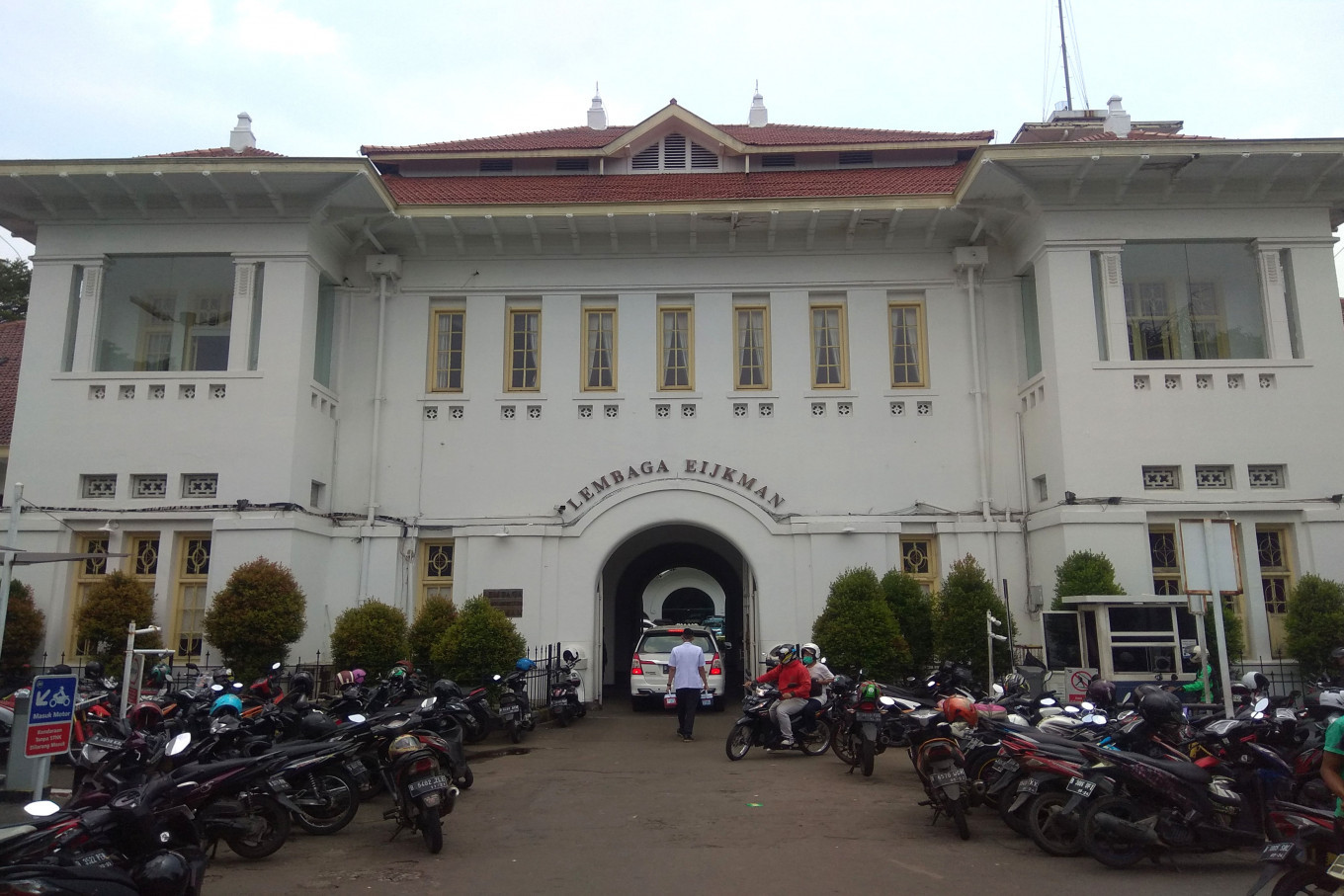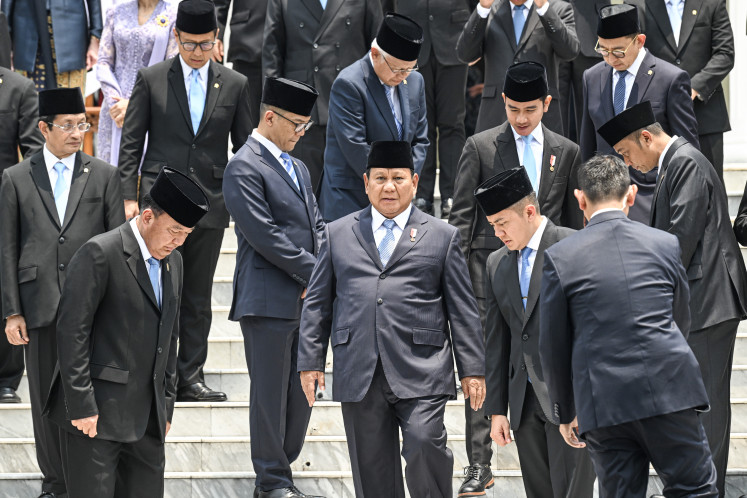Popular Reads
Top Results
Can't find what you're looking for?
View all search resultsPopular Reads
Top Results
Can't find what you're looking for?
View all search resultsEijkman lab on chopping block as BRIN consolidates
Work on the vaccine is expected to wrap up in late January.
Change text size
Gift Premium Articles
to Anyone
T
he National Research and Innovation Agency (BRIN) is pressing ahead with its consolidation drive and the Eijkman Institute for Molecular Biology has become its latest target in the project, a move which has alarmed members of the country's scientific community, concerned that it could compromise ongoing projects potentially crucial in the fight against the COVID-19 pandemic.
As top-ranking BRIN officials began their work to downsize the Eijkman Institute, founded in 1888 and named after Dutch physician Christiaan Eijkman who is credited for discovering Beriberi, the research agency has been conducting research to develop the locally-sourced Merah Putih vaccine, one of the candidates for the government’s booster shot rollout. Work on the vaccine is expected to wrap up in late January.
BRIN’s move to incorporate the institute into a government-mandated structure requires the dismissal of researchers not on the government payroll, a policy that critics say would result in an exodus of talents needed for crucial research.
Microbiology professor Amin Soebandrio, former Eijkman Institute director, said BRIN-led consolidation could disrupt crucial work in the outfit considering that most research groups have their own decades-long research culture.
“Working at Eijkman is not just about the pay, it’s about getting the experience, immersing in the work and research culture,” Amin said on Tuesday. “That’s why, although [researchers] may not be getting the heftiest pay, there is something that is invaluable.”
Amin said the transition had taken a psychological toll on researchers since there was a growing uncertainty about their long-term employment prospects as well as potential bureaucratic red tape.
Meanwhile, Satryo Brodjonegoro, the chairman of the Indonesian Academy of Sciences (AIPI), one of the country's long-standing science and knowledge institutions, said the incorporation of Eijkman into BRIN was shaping up to be “a severe step backward” for Indonesia.
“A more bureaucratic approach to research will hamper academic freedom in the country,” he said.
Despite the outcry, head of BRIN Laksana Tri Handoko said he would press ahead with the merger program and expected it to be completed by Jan. 31.
“We are aware of the controversy, but we have to do this because we want to make research a more professional and accountable affair,” Laksana said in a discussion with the media on Tuesday night.
Laksana also rebuffed speculation that bureaucracy would interfere with how researchers conduct their work. “They are free to do whatever research they want. They don’t have to come to the office. What we require from them is that they submit their research paper by December and that’s it,” he said.
A presidential regulation, signed in August last year, tasked BRIN with consolidating four national research institutions, including the Indonesian Institute of Sciences (LIPI) as well as the research and development arms of all ministries, including the research division of the Education, Culture, Technology and Research Ministry, which oversaw the Eijkman Institute.
As part of the transition, contract researchers at Eijkman have to join civil servant recruitment options, depending on their age and whether they have a doctoral degree. BRIN requires that only those with a PhD can hold a position as researcher.
Of the 71 researchers under Eijkman, only five have a doctoral degree. Three researchers with a PhD have been given civil servant status.
Wien Kusharyoto, head of the Eijkman Center for Molecular Biology Research (PRBPM), the institute’s new name following the merger, told The Jakarta Post on Wednesday that he would allow for some contract researchers to pursue a doctoral program.
Bureaucratization or professionalization?
Chairman of BRIN Laksana said the lack of researchers at Eijkman with a PhD qualification could be an indication of a lack of professionalism and that their work was mostly motivated by financial reward.
“Some of them have worked as research assistants for so long because it comes with a sense of [financial] security. Not to mention the fact that they could take up work on the side,” he said.
As for accusations that Eijkman’s merger into BRIN could destabilize the institution’s ongoing research, Handoko assured that there would be no disruption to existing projects.
“It will be strengthened even further, especially with the addition of more competent researchers, such as those from LIPI and the Health Ministry’s Health Research and Development Agency,” he told the Post earlier on Tuesday.
In his speech to inaugurate Handoko as head of BRIN, President Joko “Jokowi” Widodo set a target that the new agency would ensure that research and development activities in the country would attract more investment to the science and technology sectors.
BRIN, established in 2019, is believed to have been under the influence of former president Megawati Soekarnoputri, leader of the Indonesian Democratic Party of Struggle (PDI-P), of which Jokowi is a member. The PDI-P matriarch was reportedly inspired by her father, Sukarno, Indonesia’s first president, and was said to have suggested the idea of setting up the agency when the party gave its presidential nomination to Jokowi in 2014. Laksana rebuffed the speculation that BRIN could easily become the target of political pressure.
"You know how difficult it is to control scientists. They're too busy conducting research," he said.










